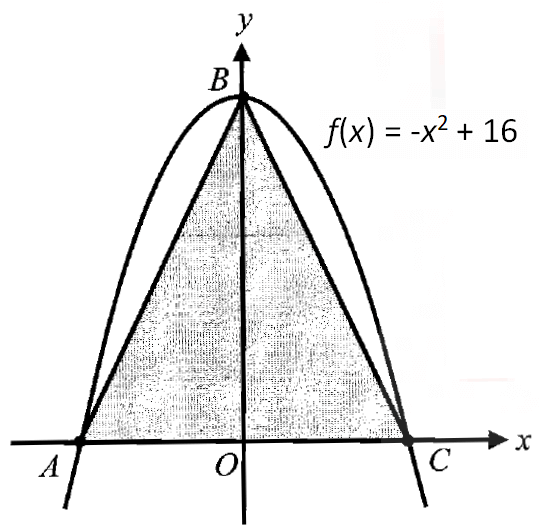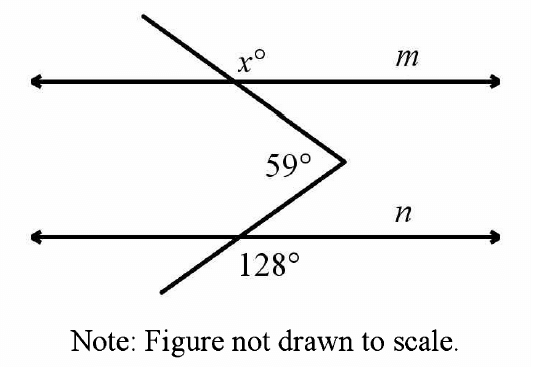SAT MATH PROBLEMS ON RATES
Problem 1 :
A faulty register records only $5 for every $8 deposit. If the register shows a total balance of $40, what is the actual balance?
Solution :
The register records $5 for every deposit and the total balance in the register is $40.
Number of deposits :
= ⁴⁰⁄₅
= 8
There are 8 deposits in all.
The original value of each deposit is $8.
Then, the actual balance is
= no. of deposits x original value of each deposit
= 8 x $8
= $64
Problem 2 :
During a trip, Jonathan had driven a total of 75 miles by 6:20 PM and a total of 85 miles by 6:40 PM. He drove at the same rate for the entire trip. At what time had he driven a total of 140 miles?
Solution :
Total distance covered at 6:20 PM = 75 miles.
Total distance covered at 6:40 PM = 85 miles.
Distance covered between 6:20 PM and 6:40 PM :
= 85 - 75
= 10 miles
Time gap between 6:20 PM and 6:40 PM is 20 minutes.
So, distance covered in 20 minutes = 10 miles.
Distance covered in one hour :
= 3 x 10 miles
= 30 miles
In other words, the speed is 30 miles per hour.
Distance covered at 6:40 PM :
= 85 miles
Distance covered at 7:00 PM :
= 85 + 10
= 95 miles
Distance covered at 8:00 PM :
= 95 + 30
= 125 miles
Distance covered at 8:20 PM :
= 125 + 10
= 135 miles
Distance covered at 8:30 PM :
= 125 + 5
= 140 miles
Jonathan had driven a total of 140 miles at 8:30 PM.
Problem 3 :
A train travelling at an average speed of 80 miles per hour takes 8 hours to complete a given trip. How much time would it take the train to complete the same trip if it traveled at an average speed of 120 miles per hour?
Solution :
Formula to find the distance :
= speed x time
Distance traveled by the train in 8 hours at the rate of 80 miles per hour :
= 80 x 8
= 640 miles
Formula to find the time :
= distance/speed
Time taken by the train to complete the same trip (640 miles) at an average speed of 120 miles per hour :
= 640/120
= 5⅓ hours
= 5 hours + ⅓ hours
= 5 hours + ⅓ x 60 minutes
= 5 hours + 20 minutes
= 5 hours 20 minutes
Problem 4 :
At a certain pizza restaurant, 8 ounces of cheese is enough for 2/3 of a pizza. Given that there are 16 ounces in a pound, how many pizzas can be produced with 12 pounds of cheese?
Solution :
Given : 8 ounces of cheese is enough for 2/3 of a pizza.
Let x be the number of ounces of cheese required for one pizza.
Then, we have
x : 1 = 8 : ⅔
x ÷ 1 = 8 ÷ ⅔
ˣ⁄₁ = 8 ⋅ ³⁄₂
x = 12
So, 12 ounces cheese required for 1 pizza.
Convert 12 pounds to ounces :
12 pounds = 12 x 16 ounces
= 192 ounces
Number of pizzas can be produced with 192 ounces (= 12 pounds) of cheese :
= ¹⁹²⁄₁₂
= 16
Problem 5 :
On Friday, Janice read x pages every 30 minutes for 4 hours, and Kim read y pages every 15 minutes for 5 hours. Which of the following represents the total number of pages read by Janice and Kim on Friday?
Solution :
Given : Janice read x pages every 30 minutes for 4 hours.
30 minutes ----> x pages
1 hour ----> 2x pages
4 hours ----> 4(2x) = 8x pages
Given : Kim read y pages every 15 minutes for 5 hours.
15 minutes ----> y pages
1 hour ----> 4y pages
5 hours ----> 5(4y) = 20y pages
Total number of pages read by Janice and Kim on Friday :
= 8x + 20y
Problem 6 :
A salad dressing supplier ensures that there are 7.5 ounces of salad dressing in every container. How many container would be required to hold 150 ounces of salad dressing?
Solution :
Given : One container can hold 7.5 ounces of salad dressing.
Number of containers required to hold 150 ounces of salad dressing :
= 20
Problem 7 :
A small shop can manufacture 4 windows every 5 hours. At that rate, how long will it take to manufacture 7 windows?
Solution :
Given : 5 hours required to manufacture 4 windows.
Let x be the number of hours required to manufacture 7 windows.
x : 7 = 5 : 4
ˣ⁄₇ = ⁵⁄₄
Multiply both sides by 7.
x = ³⁵⁄₄
= 8¾ hours
= 8 hours + ¾ hours
= 8 hours + ¾ x 60 minutes
= 8 hours + 45 minutes
= 8 hours 45 minutes
It will take 8 hours 45 minutes to manufacture 7 windows.
Problem 8 :
One calorie is equivalent to 4.184 joules of energy. One calorie also represents the amount of energy required to raise the temperature of 1 gram of water by 1° Celsius. Based on this information, raising the temperature of 1 gram of water by 120° Fahrenheit would require how many joules of energy, to the nearest hundredth?
(1° Celsius = 33.8° Fahrenheit)
Solution :
Convert 120° Fahrenheit to Celsius.
120° Fahrenheit = 120/33.8 Celsius
120° Fahrenheit ≈ 3.55° Celsius
Given : One calorie of energy required to raise the temperature of 1 gram of water by 1° Celsius.
Let x be the number of calories of energy required to raise the temperature of 1 gram of water by 3.55° Celsius.
x : 3.55 = 1 : 1
Multiply both sides by 3.55.
x = 3.55
3.55 calories of energy required to raise the temperature of 1 gram of water by 3.55° Celsius.
Convert 3.55 calories to joules.
3.55 calories = 3.55 x 4.184 joules
≈ 14.85 joules
Therefore, 14.85 joules of energy required to raise the temperature of 1 gram of water by 3.55° Celsius or 120° Fahrenheit.
Kindly mail your feedback to v4formath@gmail.com
We always appreciate your feedback.
©All rights reserved. onlinemath4all.com
Recent Articles
-
Digital SAT Math Problems and Solutions (Part - 143)
Apr 13, 25 12:01 PM
Digital SAT Math Problems and Solutions (Part - 143) -
Quadratic Equation Problems with Solutions
Apr 12, 25 08:21 PM
Quadratic Equation Problems with Solutions -
Digital SAT Math Problems and Solutions (Part - 142)
Apr 11, 25 06:26 PM
Digital SAT Math Problems and Solutions (Part - 142)

